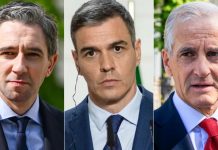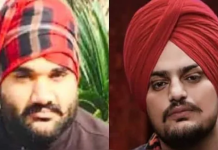Congress leader Rahul Gandhi said that Indian democracy is a “global public good” and, in a message sought for the American public by an American journalist, he added that any erosion in democracy will be a threat to the national security of the US.
Rahul also made clear to specific questions in his public interactions with reporters, think tank experts and Indian Americans that the Congress party’s fight for democracy in India is internal to India. The outside world, including the US, can decide for themselves.
He arrived in Washington DC for the second leg of his three-city tour of the US that started in California on May 30. He will travel next to New York, but after another day of meetings here, which include a visit to Capitol Hill, home to US Congress.
“Indian democracy is a global public good. And I think if you remove India from the Democratic equation, there’s a tremendous decline in the number of democracies and the amount of people who are living in a democratic space,” Rahul said in response to the questions from the American journalist.
The former MP went on to present Indian democracy as an alternative to the Chinese model of economic growth and said, “I personally don’t think that the erosion of democracy is beneficial to the national security of the US, I think it’s a disaster for the national security of the US.”
It was not clear immediately if he meant that the erosion of democracy in India posed a threat to the national security of the United States or the erosion of democracy in general.
Later, the Congress leader made it clear that he is not looking for outside intervention. “It’s our job. It’s our business. And it’s our work to fight the battle for democracy in India,” the Congress leader replied to a question about how can the international community help the fight against the “authoritarian slide” in India.
“It’s something that we understand, we accept and we do”, he said further, but went on to pitch the future of Indian democracy as an international worry because the collapse of democracy in India will have a deleterious effect on democracies around the world. “The thing to remember is that Indian democracy is a global public good, because India is large enough that a collapse in democracy in India will have an impact on the world.”
But, he reiterated, “for us, it’s an internal matter”.
Rahul fielded a whole range of questions from reporters and Indian Americans first at a news conference here at National Press Club — which is family tradition for him following his great grandfather Jawaharlal Nehru in 1956, his grandmother Indira Gandhi in 1966 and his father Rajiv Gandhi in 1985 — and at a private dinner later hosted by a prominent Indian American Frank Islam, who is also a top donor for the Democratic party and once hosted fundraiser for Joe Biden when he was vice-president.
About his disqualification from Lok Sabha, which has been a top question he has been asked on this trip, he said at the press club that he sees it as an “advantage” as, he argued, it gave him an opportunity to redefine himself, which he has done undoubtedly, or so it has seemed thus far in his trip of the United States so far. He chooses his words carefully and speaks just as much as necessary, not any more or any less. He doesn’t preach nor does he sound preachy. And he doesn’t try to impress as an intellectual or a super-smart politician.
While he has been unsparing in criticism of the Modi government on economy, its handling of minorities and assaults on press freedom and democracy, he sides with the government on the position on Russia.
“I don’t know if you’d like my answer, but I think (it’s) similar to how the BJP’s (thinking). We would be responding in a similar way,” Gandhi said in response to a question abut India’s position on Russia’s invasion of Ukraine. “We have sort of a relationship with the Russian that can’t be denied production of that can’t be denied. So I think our policy would broadly be the same.”
Russia’s invasion of Ukraine has driven a wedge into the India-US relationship. The Biden administration believes India has been soft on Russia and it has not condemned the invasion as forcefully as the west and has continued to buy Russian oil, taking the sting out of sanctions imposed by the US-led coalition. The Modi government has cited long-running relations with Russia and dependency on Russian arms – which was also acknowledged by Rahul.
20230602-200002




